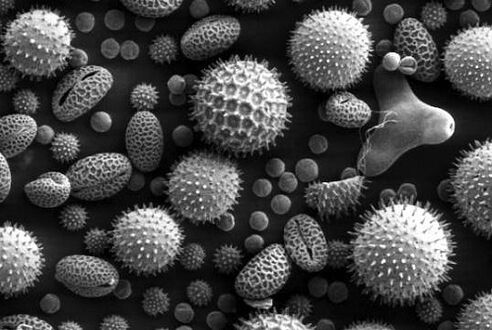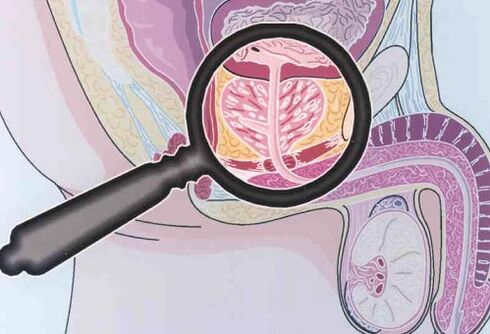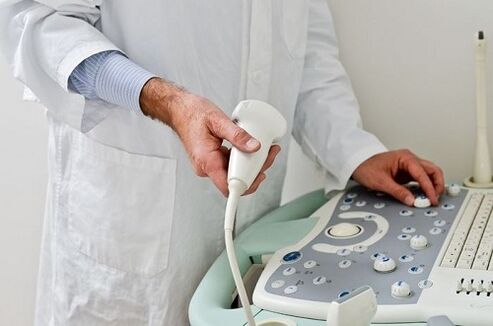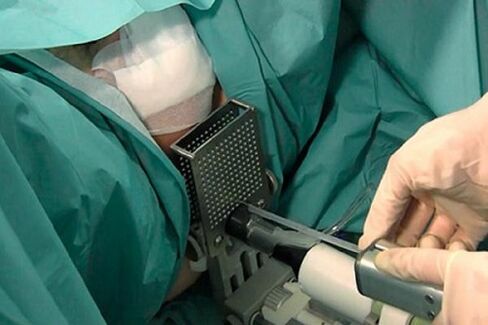In the modern world, prostatitis occurs in nearly 50% of the male population. Not only does the disease bring pain and discomfort, but it can also lead to very unpleasant consequences, possibly leading to infertility. Therefore, every man should know what symptoms of prostatitis look like. Men's health and fertility largely depends on this.

Knowledge of the signs of prostatitis and regular examination by a doctor ensures timely detection and successful treatment of the disease.
The origin of the disease
Prostatitis is a urinary tract disease with an inflammatory etiology. The disease can be caused by many factors.
The classification of prostatitis depends on the etiology of the disease of the prostate gland, the prevalence of the process and the characteristics of the lesion.
The following classification criteria are distinguished:
- Presence factors are congestion and infection. In the first case, the problem develops not from an infection, but from stagnant venous blood or secretions in the pelvic organs. The second involves the introduction of pathogenic microorganisms into the prostate. There is also prostatitis of mixed origin.
- Damaged area. With prostatitis, the gland can become inflamed in a variety of ways. It can be a chronic or acute form of the disease, so it is divided into parenchymal, dermatomyositis and cystic types. The lesion may be of a sclerotic nature or present as an abscess. This category also includes atypical chronic prostatitis, whose symptoms do not correspond to the classic picture of the disease.

The symptoms of the disease also depend on its cause. The infectious form occurs due to the penetration of pathogenic microorganisms into the prostate gland through the genital tract or develops against the background of chronic infection.
Non-infectious prostatitis can be triggered by a weakened immune system, hypothermia, a sedentary life, abstaining from sex, or conversely, excessive sexual activity. Each case requires a different treatment.

The prolonged absence of sex will cause stagnation of the secretion of the prostate gland and the development of congestive prostatitis.
Depending on the form diagnosed, the signs and symptoms of prostatitis can vary. Self-treatment is strictly prohibited, as the ignorant may confuse the manifestation of one disease with another, for example, prostatitis with orchitis, seminal vesitis, urethritis or benign hyperplasia. Improper treatment can lead to extremely sad consequences.
General symptoms
What are the symptoms of prostatitis? If you do not take into account a specific type, then the disease can manifest itself with the following characteristic symptoms:
- severe pain, localized first to the genitals, then to the entire groin and abdomen;
- persistent pain in the scrotum and perineum, especially during urination and erection;
- during an erection, the sex organs cannot reach their previous size;
- intercourse time becomes shorter.

Symptoms may appear together or separately. If we talk about pain, then its intensity largely depends on the form and extent of the disease. Unfortunately, many patients in the early stages do not pay attention to such symptoms, because for the disease to progress more seriously, it can develop into chronic prostatitis, the danger of which is infertility.
If a man begins to observe such symptoms in himself, then there is a high risk of prostatitis and you should immediately seek professional help.

Even minor manifestations of prostatitis should see a doctor.
Symptoms of acute bacterial prostatitis
Bacterial prostatitis is a form of infection caused by an infection. It can easily become chronic prostatitis, so you need to see a doctor for timely help.
Often, acute bacterial prostatitis is a side effect that accompanies any disease of the pelvic organs and has symptoms similar to it.
Acute bacterial prostatitis may present with the following symptoms:
- increased body temperature;
- chills, accompanied by tremors in the muscles;
- pain in the prostate area;
- bloody and painful urination;
- pain spreading to the lumbar region and the entire perineum;
- problems with urination.

If the patient passes the tests, then the disease can be suspected in the following cases:
- an increase in the number of white blood cells in the blood;
- bacterial cells present in the secretions of the prostate gland;
- cloudy urine with a pH above 7. 0.

In urinalysis with prostatitis, characteristic changes will be present.
These are the main signs of acute bacterial prostatitis. If you do not pay attention to them and do not proceed with treatment, the acute form will quickly turn into a chronic, the signs of this disease should also be known to every man.
Symptoms of chronic bacterial prostatitis
Chronic prostatitis occurs due to neglect of treatment of the acute form of the disease and is characterized by periods of exacerbation and remission.
For a man, it could be the discovery that he once had acute prostatitis, which was supposed to be treated and recovered, but after a while the symptoms of the disease (albeit a muffled version) continues. In this case, it is worth thinking about the chronic course of the disease.

The absence of obvious symptoms is very dangerous due to the incidental late detection of chronic prostatitis in its advanced form.
Chronic prostatitis has no obvious symptoms, so it often leads to many dangerous complications.
However, in such a situation, there are a few things to watch out for:
- burning and cutting (sometimes with unbearable pain) during a bowel movement and sexual arousal;
- a constant desire to urinate, at least once an hour, at the end of the process, a feeling of complete emptiness does not occur;
- in the urinary tract there is a burning sensation during and after defecation;
- the jet has a weaker pressure than before - there may even be interruptions in the flow;
- at night you constantly want to go to the toilet;
- after the end of sexual intercourse, an unpleasant burning sensation remains in the genitals;
- ejaculation occurs quickly enough;
- Insomnia and anxiety for no reason can be observed.
All major symptoms of chronic prostatitis are easily confused with sexual disorders. The problem is that few men can admit it to themselves. So they begin to self-medicate, aimed at restoring sexual strength, which only leads to a complicated situation.
The taboo of chronic bacterial prostatitis is the need for constant monitoring, otherwise it can lead to infertility, which can only be diagnosed after the patient has been fully diagnosed.

A comprehensive examination to detect prostatitis necessarily includes an ultrasound examination.
The symptoms of the disease can manifest themselves in different ways, and this applies not only to chronic disease, but also to acute bacterial prostatitis.
It is all about the amount of bacteria in the body and in the body of each patient. As soon as the pathogenic organisms begin to activate and multiply, the man will begin to aggravate. In addition, if the patient has an unhealthy lifestyle (smoking, less mobility, drinking alcohol and harmful products) it should not be surprising that the disease will progress continuously.
Nonbacterial prostatitis and its manifestations
Bacterial prostatitis is also quite common. It would be helpful to know what symptoms might be present in this case. The characteristic of the pathology is that pain occurs frequently, not only during intercourse or going to the toilet.

Bacterial prostatitis is characterized by frequent nighttime defecation and nighttime urinary excretion predominates over daytime.
In addition, the following manifestations are associated with non-infectious prostatitis:
- pain in the genitals;
- pain and discomfort in the groin area;
- nocturia and testicular pain;
- decreased urine output;
- difficulty initiating the process of urinating;
- pain from the groin and lower back gradually moving to the lower back;
- pain in the groin, coccyx and pubic;
- discomfort after defecation.

Psychological discomfort associated with physical distress during illness.
Symptoms of the disease may be accompanied by psychological disturbances. The patient becomes irritable, as he is constantly tormented by pain and discomfort.
If no timely measures are taken, the man can even fall into a state of depression, and then he will have to seek help not only from a urologist, but also from a psychologist. .
It should be noted that atypical prostatitis in its clinical setting may resemble a number of other diseases, and asymptomatic prostatitis may not present any obvious manifestations. Therefore, it is important to see a qualified doctor who will prescribe a number of diagnostic and testing measures - urinalysis, blood, semen analysis, ultrasound, if necessary, biopsy. , . . . Only then can the doctor make an accurate diagnosis. and prescribe full treatment.

Usually, a biopsy is done to rule out a malignancy process.
Knowing the symptoms of prostatitis is important for each representative of the strong half of humanity to know what kind of disease bothers him, because the functioning of the entire genitourinary system dependsin it. And the sooner a man asks for help, the sooner relief will come to him.

























